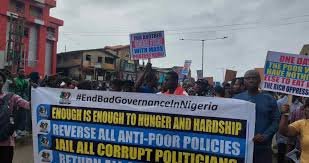Following the trending hashtag #EndBadGovernance Nigerian Youths has stormed the streets to massively protest against hunger in the country. read updates from different states below.
Today, August 1, 2024, Nigerians from various regions united in a nationwide protest against hunger and economic hardship. Dubbed the “Days of Rage,” these protests, led by prominent human rights activists and civil society groups, are a response to the worsening economic situation under President Bola Ahmed Tinubu’s administration. The demonstrations, planned to last until August 10, reflect a deep sense of frustration among Nigerians over the rising cost of living and perceived poor governance.
Why Are Nigerians Protesting today August 1st 2024 ?
Nigerians are protesting due to a combination of economic and political issues that have severely affected their daily lives. Here are the main reasons:
- Economic Hardship: The primary driver of the protests is the worsening economic situation. The removal of fuel subsidies has led to a dramatic increase in fuel prices, which has, in turn, driven up the cost of goods and services. Inflation has made basic necessities like food and transportation unaffordable for many Nigerians, exacerbating poverty and hardship.
- Rising Unemployment: High unemployment rates, particularly among the youth, have left many without stable incomes. The lack of job opportunities, coupled with a stagnant economy, has fueled frustration and despair.
- Poor Governance and Corruption: Protesters are also expressing dissatisfaction with what they perceive as poor governance and widespread corruption. There is a belief that government officials are not doing enough to address the issues facing the country, and instead, are benefiting from policies that disadvantage the average citizen.
- Social and Political Injustices: The protests are also a response to broader social and political injustices. Many Nigerians feel marginalized and believe that their voices are not being heard by those in power. This includes issues related to human rights abuses, lack of accountability, and insufficient social services.
- Fuel Price Increase: One of the specific demands of the protesters is a reduction in fuel prices. The recent increase in fuel costs, from ₦167 per liter to around ₦1,000 per liter, has been a significant burden on citizens. The high cost of fuel impacts transportation and the overall cost of living, making it a focal point of the protests.
- Calls for Political Reform: Beyond economic issues, there is a strong call for political reform. Protesters are advocating for changes that would lead to more transparent and accountable governance. They are pushing for a government that listens to and prioritizes the needs of its citizens.
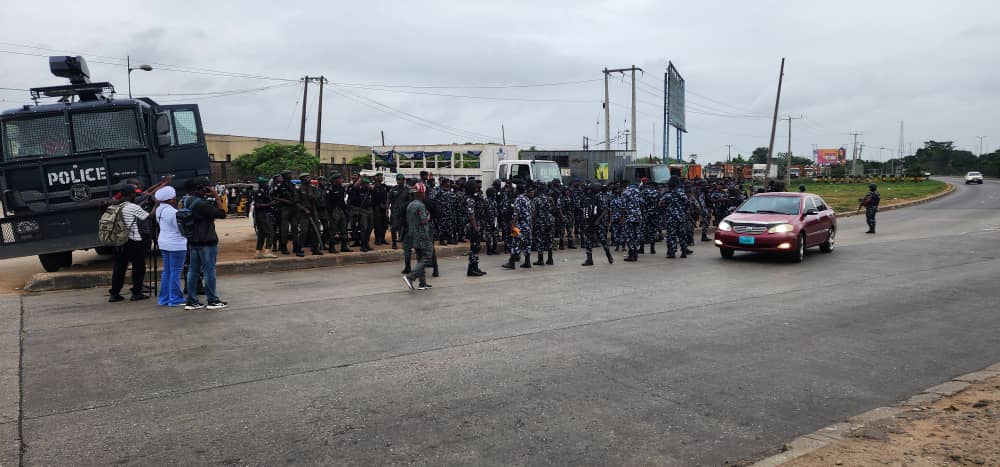
Scenes from the Protests
Abuja:
In the capital city, protesters converged at the Moshood Abiola National Stadium, following a court order that restricted them to this location. The atmosphere was charged yet peaceful, with participants singing solidarity songs. Security was tight, with a significant presence of police and other security operatives, who closely monitored the situation to prevent any disruptions.
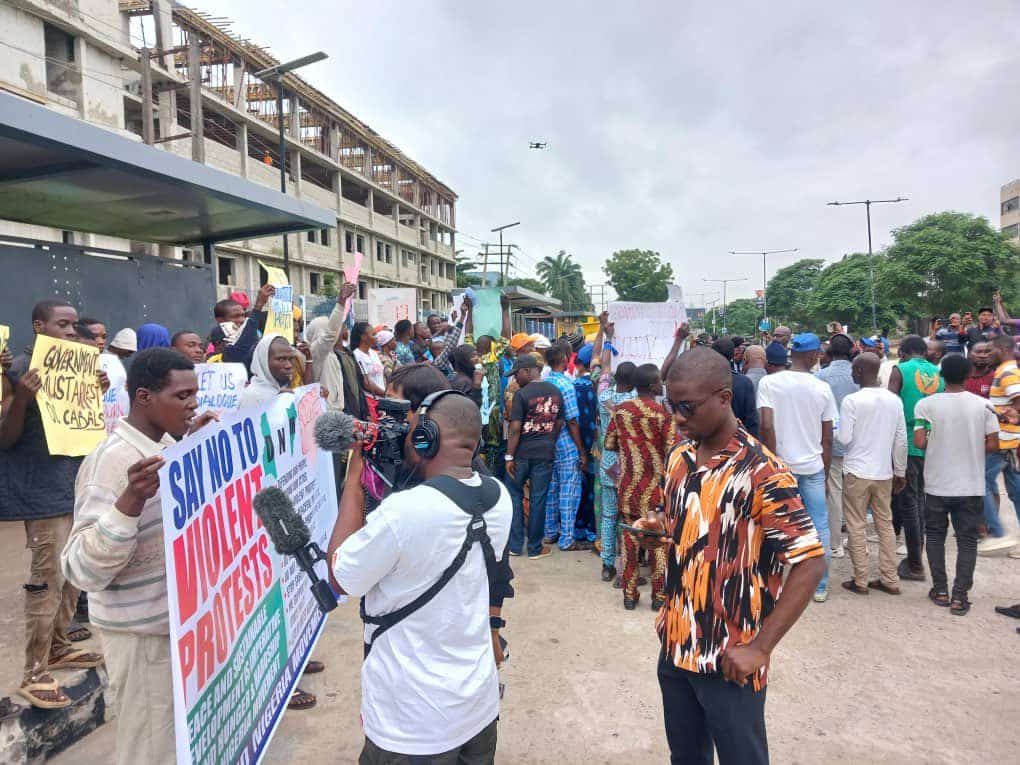
Lagos:
Lagos, Nigeria’s commercial hub, saw significant activity, particularly in Alausa and Ojota. Here, a large number of protesters gathered, expressing their grievances against the government. The presence of police was notably heavy, with reports of teargas being deployed to disperse crowds in some areas. Despite the tension, the majority of the protests remained non-violent, with demonstrators voicing their concerns through chants and placards.
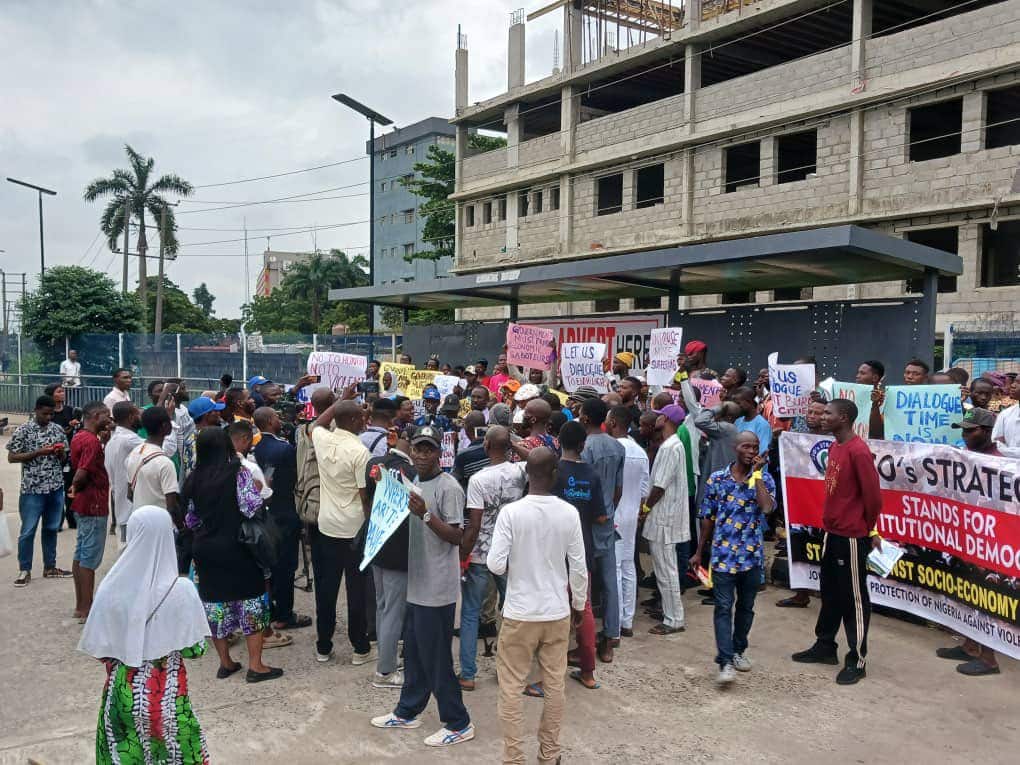
Benin City:
In Benin City, Edo State, the protests were marked by a peaceful assembly, despite the government’s efforts to deter participation. Demonstrators gathered at Akpakpava Road, near Ring Road, a designated protest venue. The protests in this region highlighted the widespread nature of the discontent, cutting across different regions and socio-economic backgrounds.
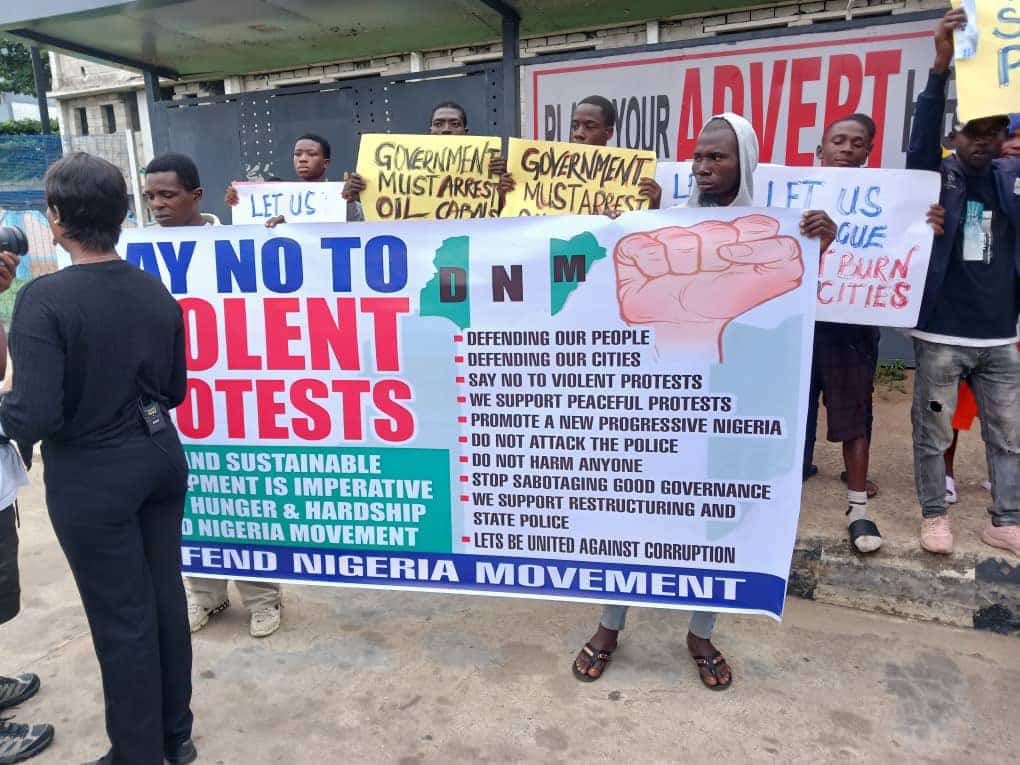
Government and Public Reactions
The government’s response has been a mix of cautious acknowledgment and firm warnings. While recognizing the right to peaceful protest, authorities have stressed the importance of maintaining public order. President Tinubu’s administration has been vocal about the need to prevent violence, urging protesters to express their grievances within the bounds of the law.
However, this stance has not deterred the protesters. Civil society organizations (CSOs) have been particularly vocal, defending the right to protest and calling for the government to address the root causes of the discontent. They have outlined specific demands, such as reducing fuel prices and cutting government spending, which they believe are necessary steps to alleviate the economic burden on ordinary Nigerians.
The Broader Implications
The “Days of Rage” protests are more than just a reaction to economic hardship; they represent a broader call for systemic change. The movement has gained significant traction on social media, with hashtags like #EndBadGovernance and #Revolution2024 trending. These protests echo the sentiments of previous movements, such as the #EndSARS protests of 2020, which also sought to address systemic issues in Nigeria.
As the protests continue, there is a palpable sense of anticipation about their potential impact. Will they lead to substantive policy changes, or will they fizzle out like many protests before them? For now, the voices of the people are loud and clear: they want a government that listens and acts in their best interests.
This wave of protests is a significant moment in Nigeria’s history, a testament to the power of collective action in the face of adversity. The coming days will be crucial in determining the future of this movement and the response from the government. Whatever the outcome, the message from the streets is unmistakable—Nigerians are demanding a better future, and they are willing to stand up for it.

